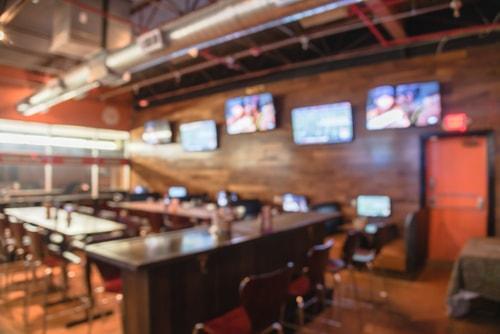Wheaton |
St. Charles |
Sycamore
 630-665-7300
630-665-7300
Restaurant Chain Faces Sexual Harassment Lawsuit
 There is little question that sex sells. Sex appeal has long been used in public relations and marketing, and a few restaurant chains have made a fortune incorporating attractive, provocatively-dressed servers into their themes. One of these chains, however, is now facing allegations of bait-and-switch tactics that former employees say amounted to sexual harassment and sex discrimination in the workplace.
There is little question that sex sells. Sex appeal has long been used in public relations and marketing, and a few restaurant chains have made a fortune incorporating attractive, provocatively-dressed servers into their themes. One of these chains, however, is now facing allegations of bait-and-switch tactics that former employees say amounted to sexual harassment and sex discrimination in the workplace.
Orland Park Servers File EEOC Claims
Two former employees at the Orland Park, IL, location of Twin Peaks have filed complaints with the Equal Employment Opportunity Commission (EEOC). The two women allege that while they understood that sexuality would be a part of working at the hunting-lodge style sports bar and grille, the expectations placed on them changed dramatically about six months after the Orland Park location opened in April of 2016.
The typical Twin Peaks server uniform—which the women were “comfortable wearing”—consists of short khaki shorts, mountain boots, and a flannel-like t-shirt that shows cleavage and exposes the server's midriff. The women say, however, that they were required to spend their own money to buy lingerie, bikinis, and other non-dress code compliant outfits to be worn on certain days at work. When shopping, they allege, they were expected to send dressing room photos to supervisors to determine if the outfits were revealing enough. The complaints indicate that at least one women was told, “If you don't like it, you can leave.”
Around Valentine's Day in 2017, photos of the servers in lingerie were posted to the restaurant's Facebook page. In the days that followed, Orland Park police were summoned to the restaurant several times over complaints regarding the servers' clothing. At least one of the women who filed a complaint with the EEOC was cited for violating a local ordinance for indecent exposure.
“Degraded Our Appearance”
The women also allege that management instituted a pre-shift ranking grading system. The servers were lined up and graded on their “hair, makeup, and ‘tone,'” the complaint states. “The managers took pictures of us, and graded our appearance based on their subjective opinions of our stomach, legs, arms, and buttocks.” Those who ranked best were given better sections of the restaurant, while those who received low grades were placed in sections with relatively few customers.
“We did not sign up to work at a strip club,” said one of the former employees. “I'm not downing women who work at strip clubs, but we signed up to be servers and bartenders.”
A New Era for Sexual Harassment Lawsuits
Claims have been filed against establishments similar to Twin Peaks in the past, including restaurants such as Hooters and Tilted Kilt. Such claims have either been settled privately or defended on the basis that servers know what they are signing up for when they apply. Sex discrimination claims also often depend on female claimants showing that were treated differently than male coworkers—which can be challenging when an establishment uses an all-female wait staff.
In the wake of the #MeToo and #TimesUp movements, many legal experts believe that Twin Peaks may be especially vulnerable. The current social climate regarding sexual harassment and sex discrimination could be pushing an evolution of legal theory as it applies to workplace equality.
Contact Us for Help
If you have been a victim of sexual harassment, contact an experienced Illinois sexual harassment attorney to get the help you need. Call 630-665-7300 for a confidential consultation today.
Sources:
http://www.chicagotribune.com/business/ct-biz-twin-peaks-sexual-harassment-allegations-20180426-story.html
http://wgntv.com/2018/04/26/twin-peaks-employees-say-they-were-graded-for-looks-forced-to-wear-lingerie/
https://chicago.eater.com/2018/4/26/17285538/twin-peaks-sex-discrimination-lawsuit-waitresses-chicago-restaurant-breastaurant


 Read More
Read More





